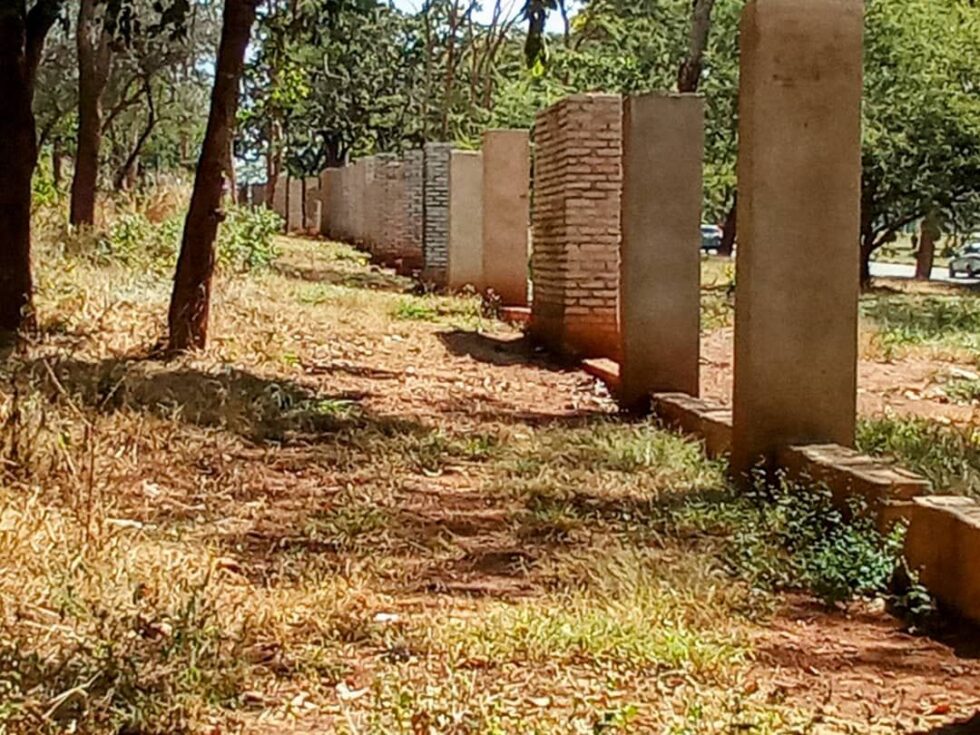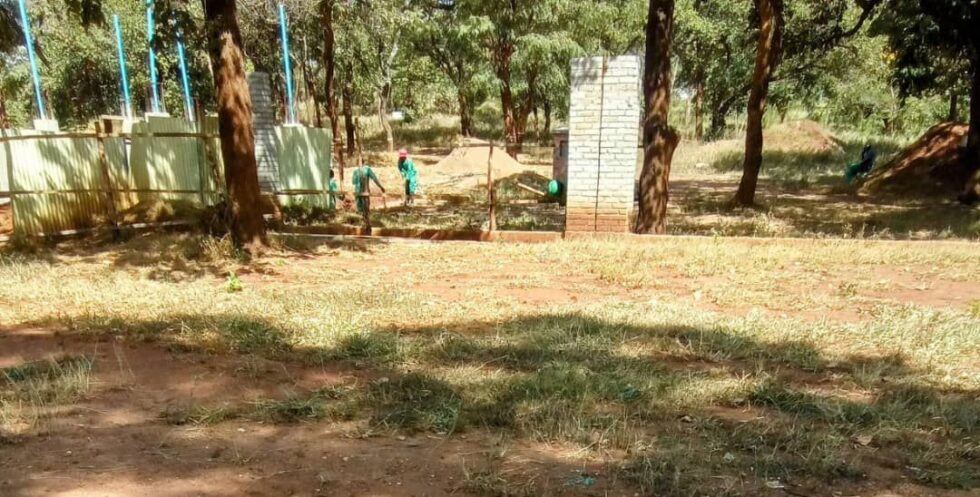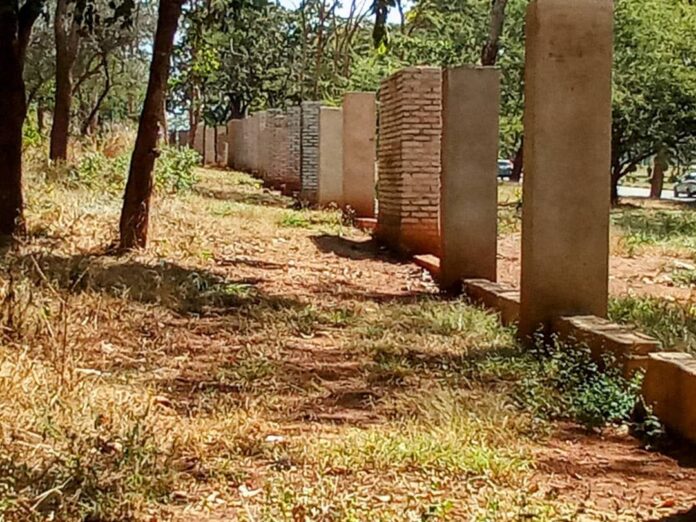By Burnett Munthali
On Friday, 9th May 2025, we paid a visit to the construction site of the long-anticipated Judiciary Headquarters Office, situated just behind the Parliament building in the Capital City’s City Center.
What was meant to be a hub of progress and a testament to the state’s commitment to judicial reform and infrastructural development now stands as a colossal reminder of delay and neglect.
What we observed was striking.
The structure itself still towers dominantly, its grey skeleton a bold outline against the city skyline.
But the commanding presence of the building is betrayed by a haunting stillness.

The noise and movement of construction workers—once a hallmark of this location when the project commenced—have faded into an eerie, deafening silence.
The site that once bustled with ambition now slumbers in inertia.
As we approached what seemed to be the main entrance of the unfinished edifice, a sense of abandonment thickened.
Only a few men dressed in green work suits could be seen moving about, their actions slow and seemingly uncoordinated.
They touched a few materials here and there, with no tools in motion and no machinery roaring to life.
The energy was faint, as though the workforce had been reduced to shadows, performing a ritual of presence without the spirit of progress.
This construction project is one of national significance, fully funded by the Government of Malawi.
It is meant to embody a new era for the judiciary—a physical symbol of transparency, efficiency, and institutional integrity.
However, the reality observed on the ground tells a different story.
A story of public funds potentially hanging in limbo and of a grand vision being quietly postponed, if not forgotten.
The implications of this extended inactivity are profound.
At the most basic level, delayed construction means delayed justice infrastructure.
The judiciary continues to operate in crowded or outdated facilities, hampering efficiency.
Financially, the longer a project like this drags, the more expensive it becomes.
The government may find itself incurring additional costs due to prolonged contracts, material deterioration, or even legal battles with contractors.
Beyond infrastructure and economics, there is a silent erosion of public trust.
Citizens who were once hopeful about the government’s commitment to strengthening democratic institutions begin to question the sincerity of such initiatives.
Every silent day at that construction site becomes a symbol of broken promises, misplaced priorities, or possible mismanagement.
In a country battling economic constraints, high youth unemployment, and rising public scrutiny of state expenditure, the inactivity at the Judiciary Headquarters site should not be ignored.
It must spark serious conversations—within Parliament, among civil society, and across the public space—about accountability, transparency, and the true pace of our national development efforts.
The judiciary deserves a home that reflects the dignity of its mission.
The people of Malawi deserve visible, tangible results from the taxes they pay.
This project cannot be allowed to become yet another relic of good intentions buried beneath bureaucratic inaction.
It must be revived, completed, and serve the purpose for which it was envisioned.




